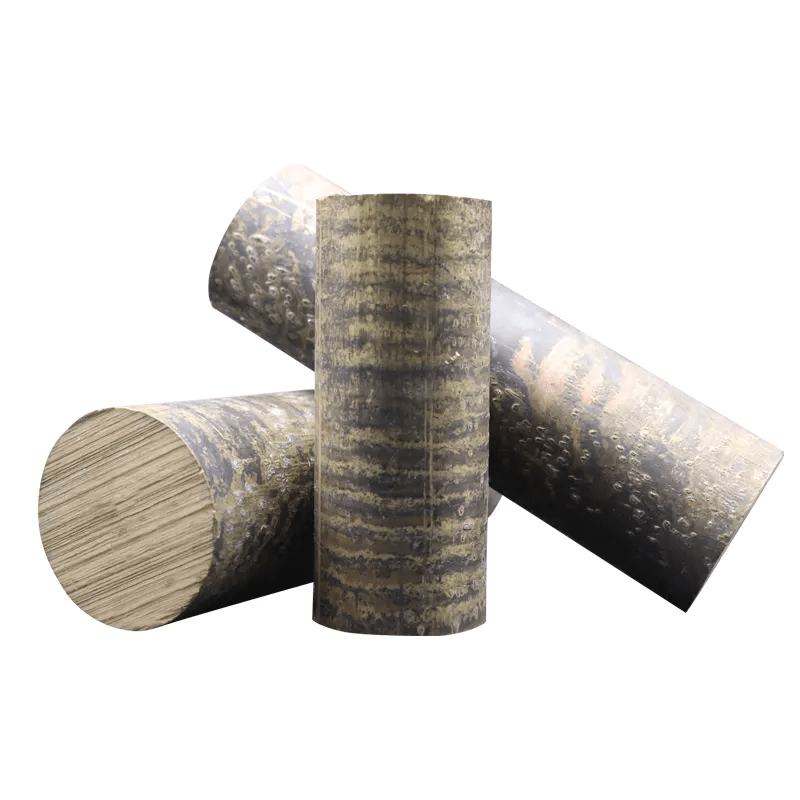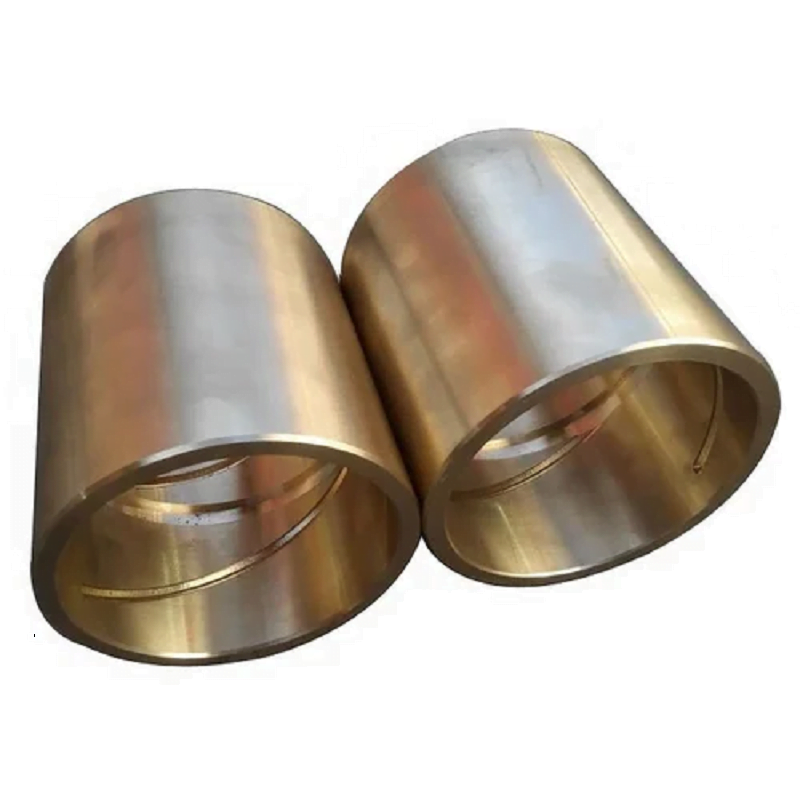
Le bronze à l'étain et le bronze à l'aluminium sont tous deux des types d'alliages de cuivre, mais ils diffèrent par leur composition et leurs propriétés :
Composition:
- Tin Bronze: Principalement composé de cuivre et d'étain, l'étain étant généralement compris entre 5 % et 20 %. Il peut également contenir de petites quantités d’autres éléments pour des propriétés spécifiques.
- Aluminium Bronze: Contient du cuivre et de l'aluminium, la teneur en aluminium allant généralement de 5 % à 12 %. Il peut également contenir de petites quantités de fer, de nickel ou de manganèse.
Propriétés:
- Tin Bronze: Connu pour son excellente résistance à la corrosion, sa bonne résistance à l’usure et sa haute résistance. Il est souvent utilisé dans des applications telles que le matériel marin, les instruments de musique et les roulements.
- Aluminium Bronze: Offre une résistance supérieure à la corrosion, notamment dans les environnements marins, ainsi qu’une résistance élevée et une bonne usinabilité. Il est souvent utilisé dans les composants aérospatiaux, les pompes et les vannes.

Applications:
- Tin Bronze: Couramment utilisé dans les applications où une bonne résistance à l'usure est cruciale, comme dans les roulements et les bagues.
- Aluminium Bronze: On le trouve généralement dans des environnements plus exigeants, comme dans les industries aérospatiale et pétrolière, en raison de sa robustesse et de sa résistance aux conditions difficiles.
En résumé, les principales différences résident dans leurs éléments d’alliage et dans les propriétés mécaniques et de résistance à la corrosion qui en résultent, qui dictent leurs applications respectives.
